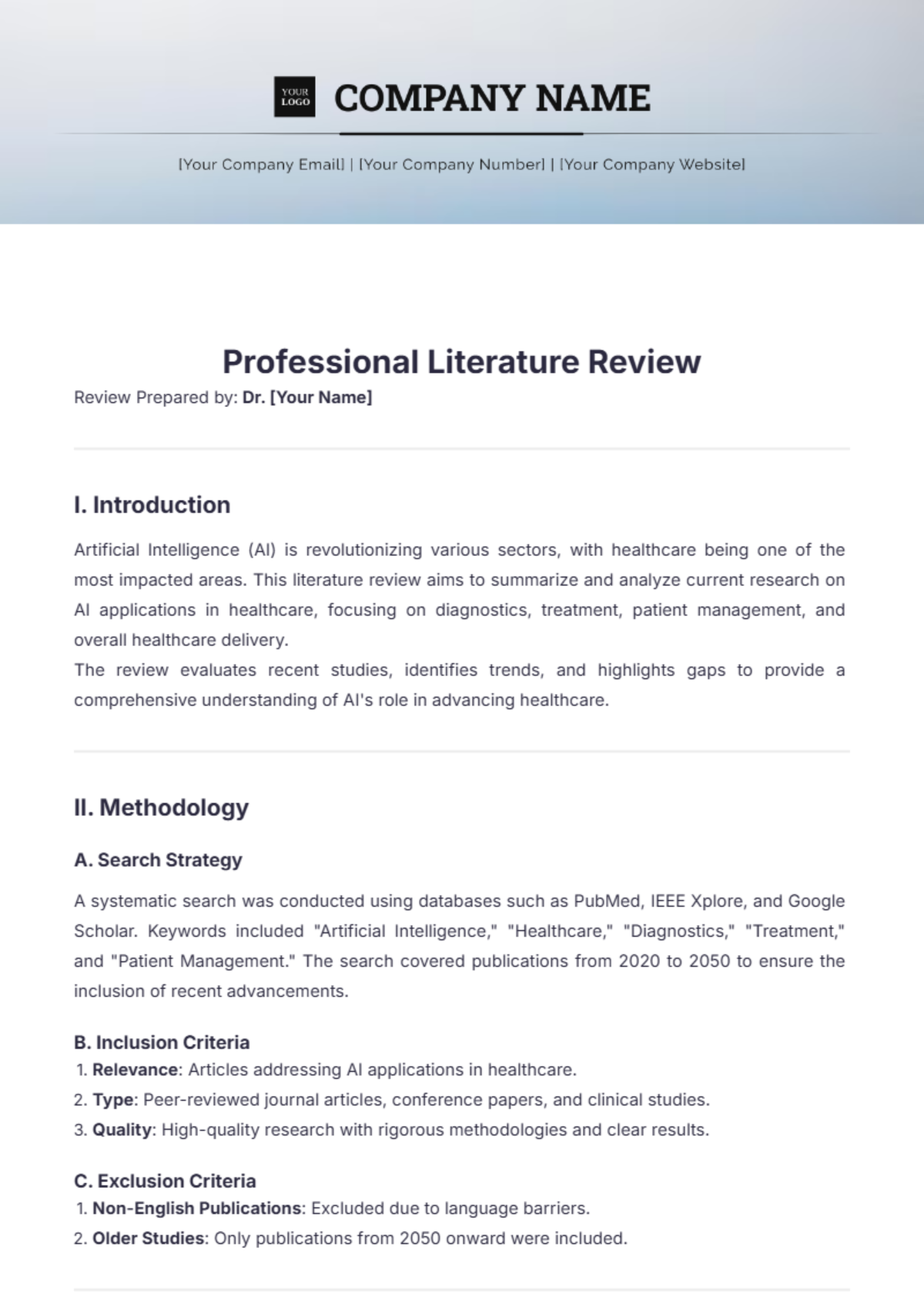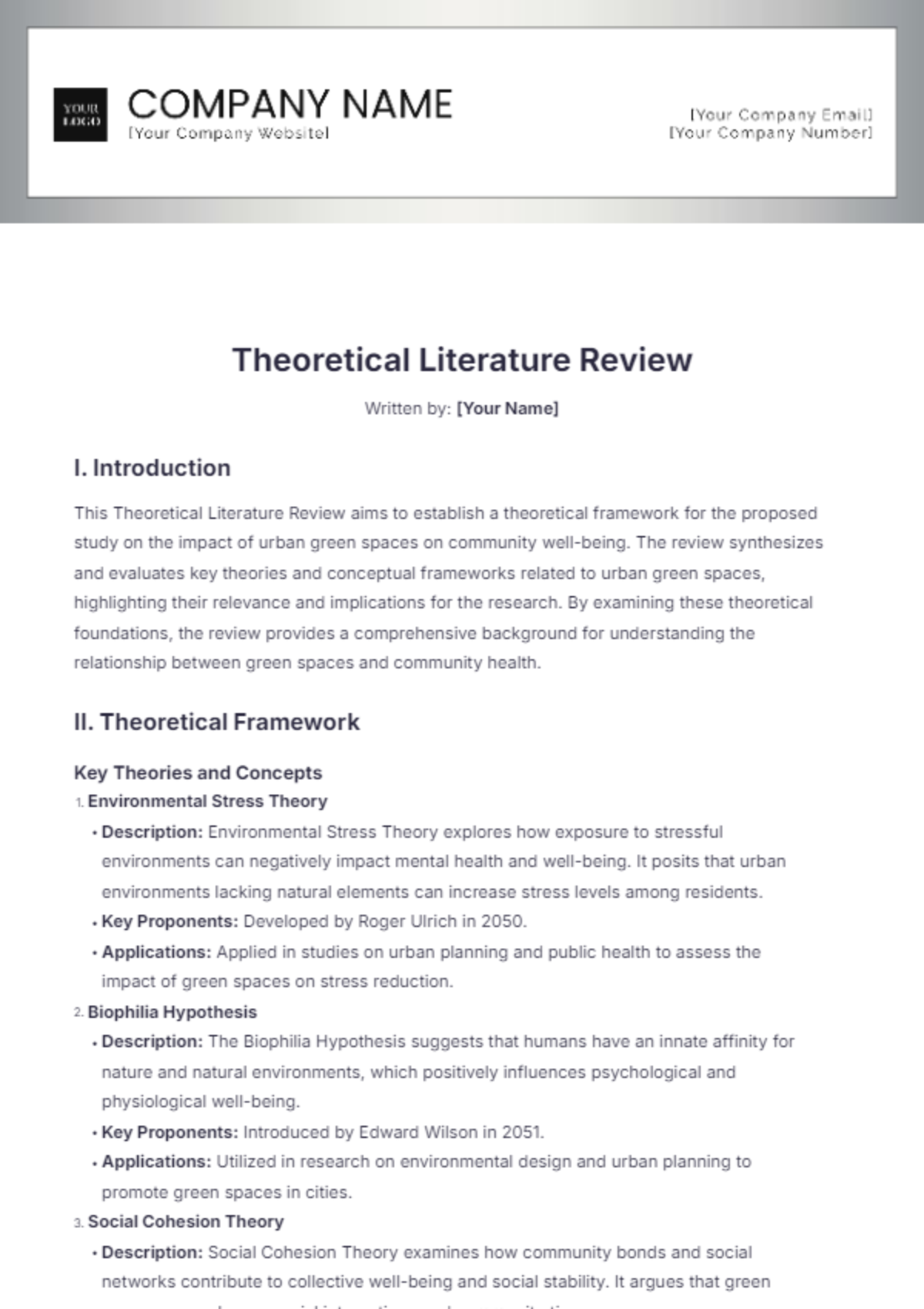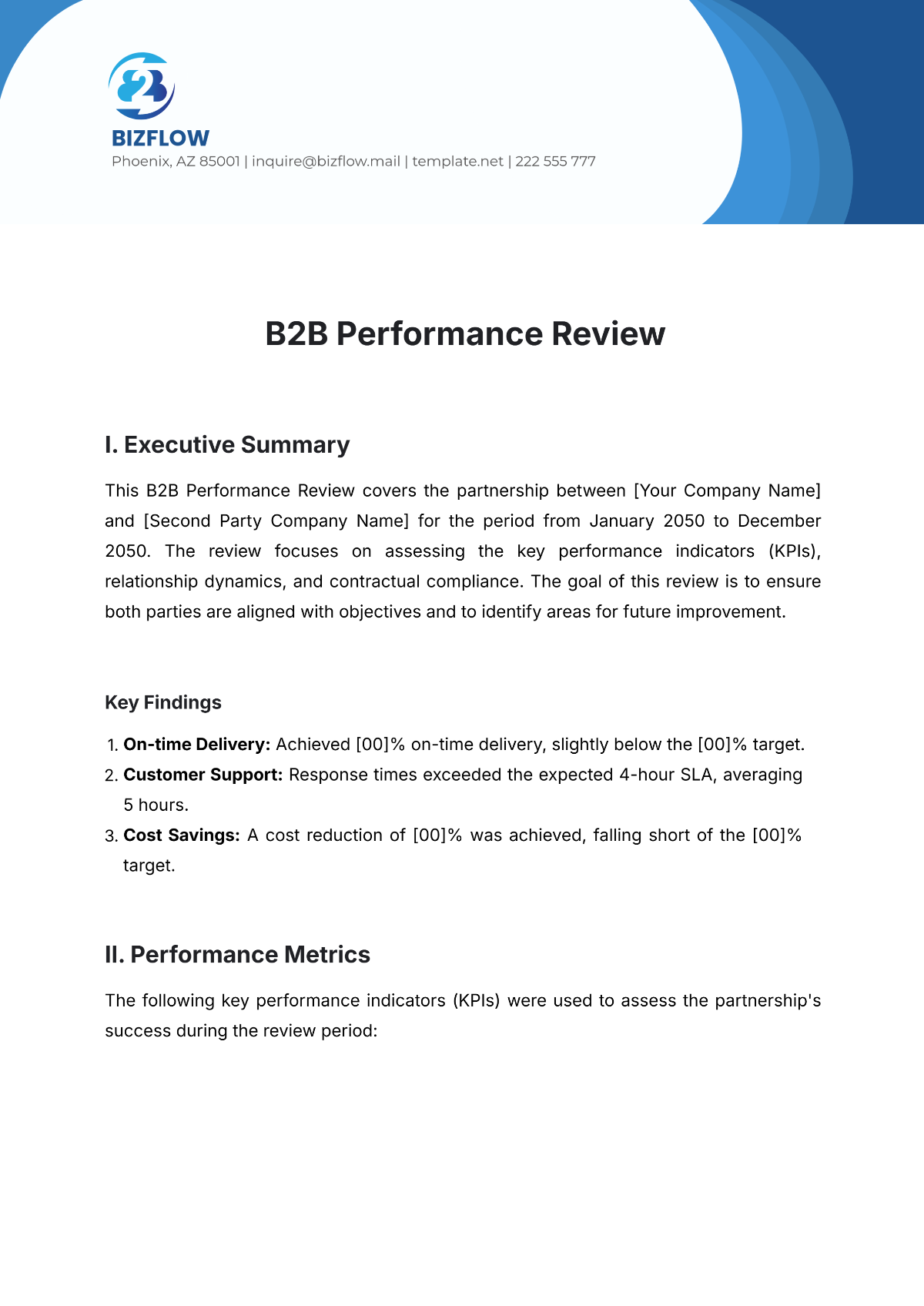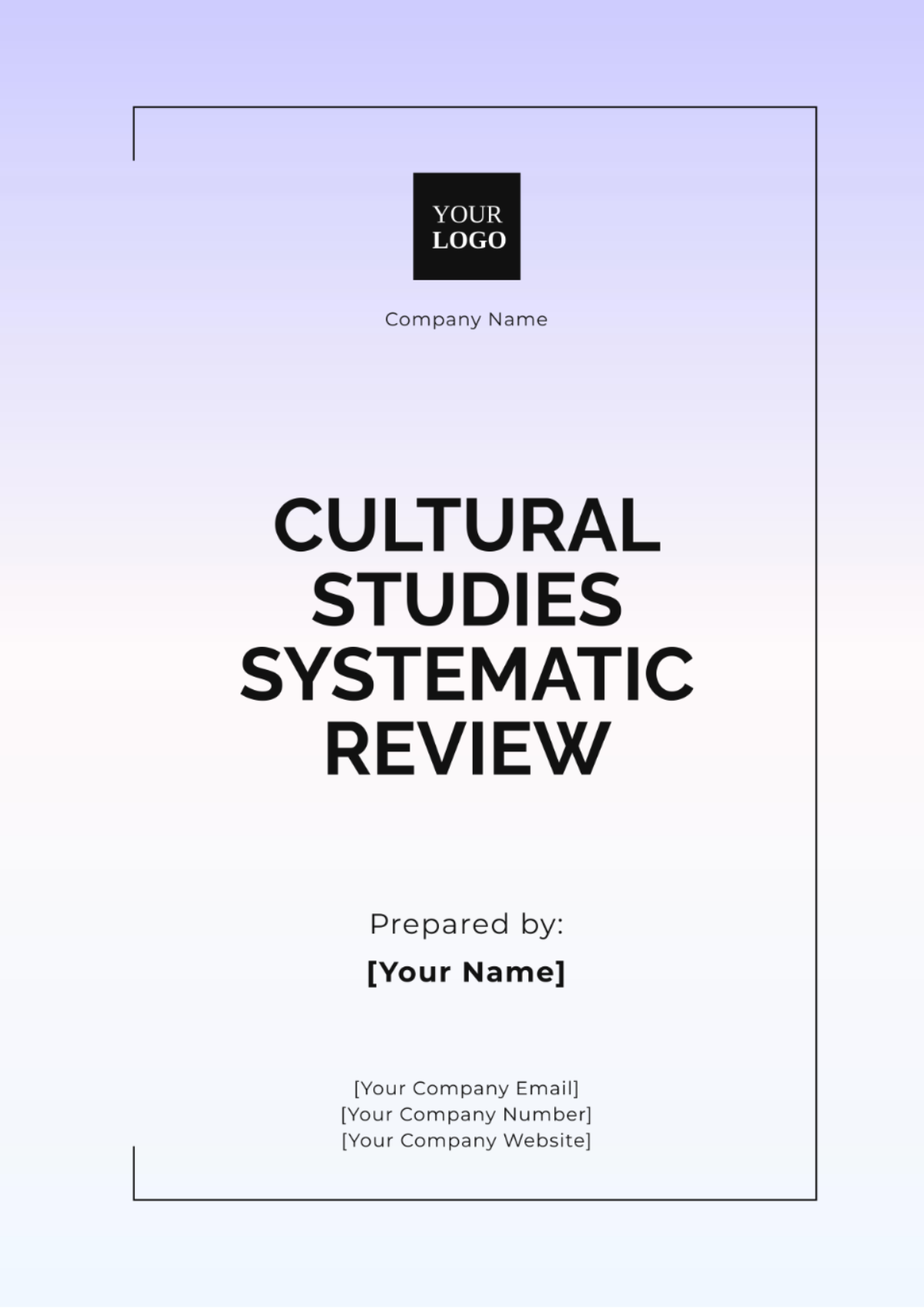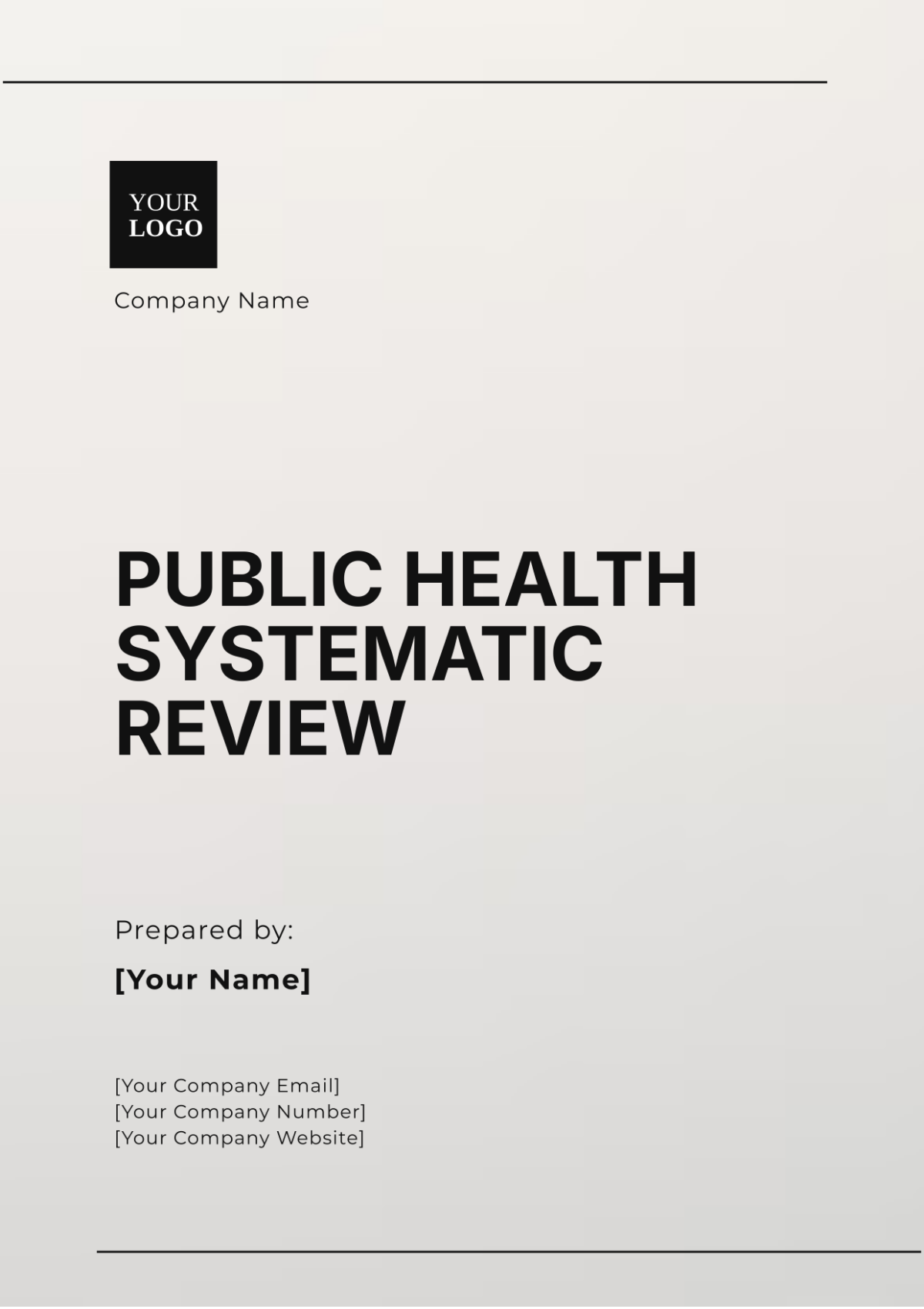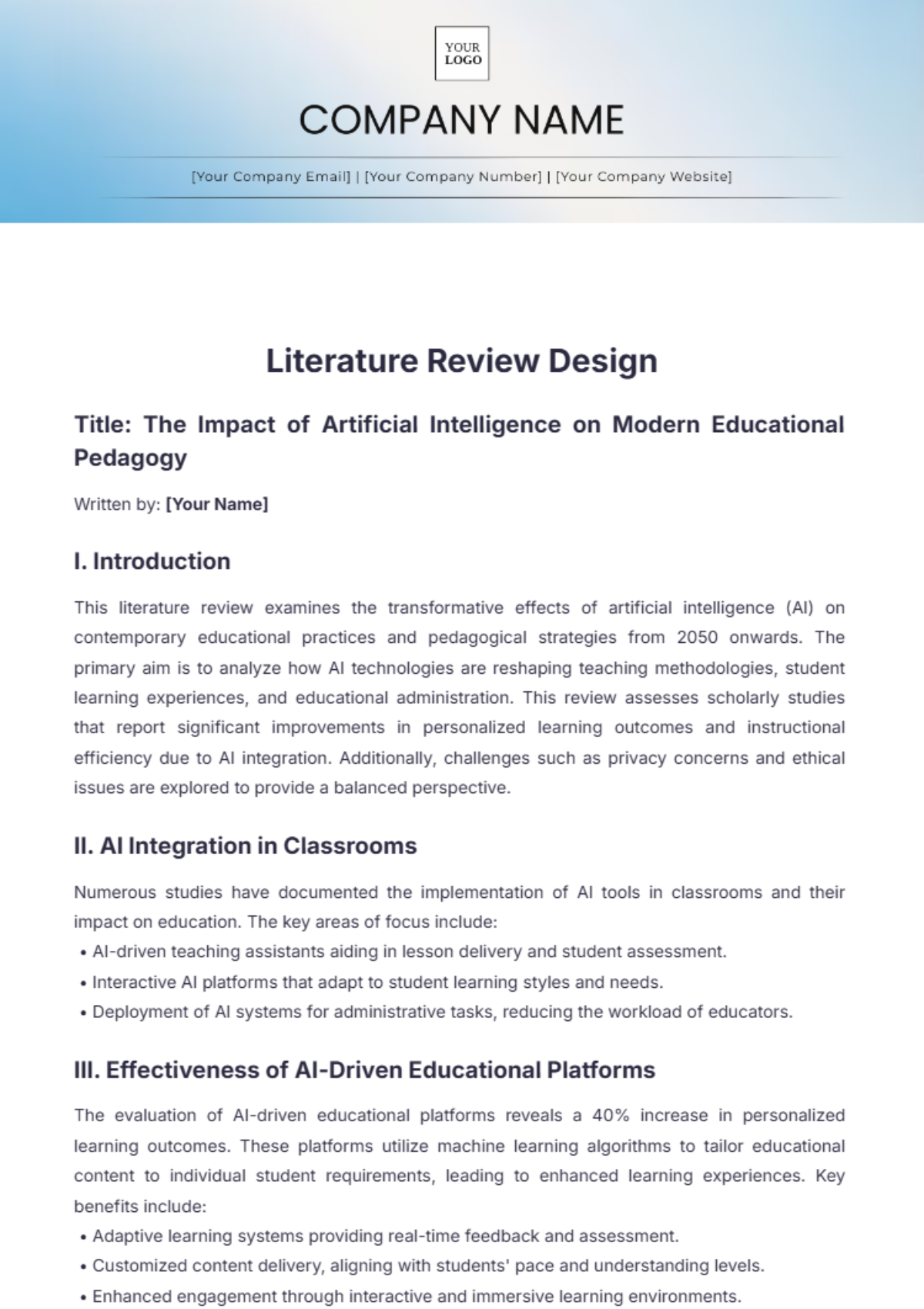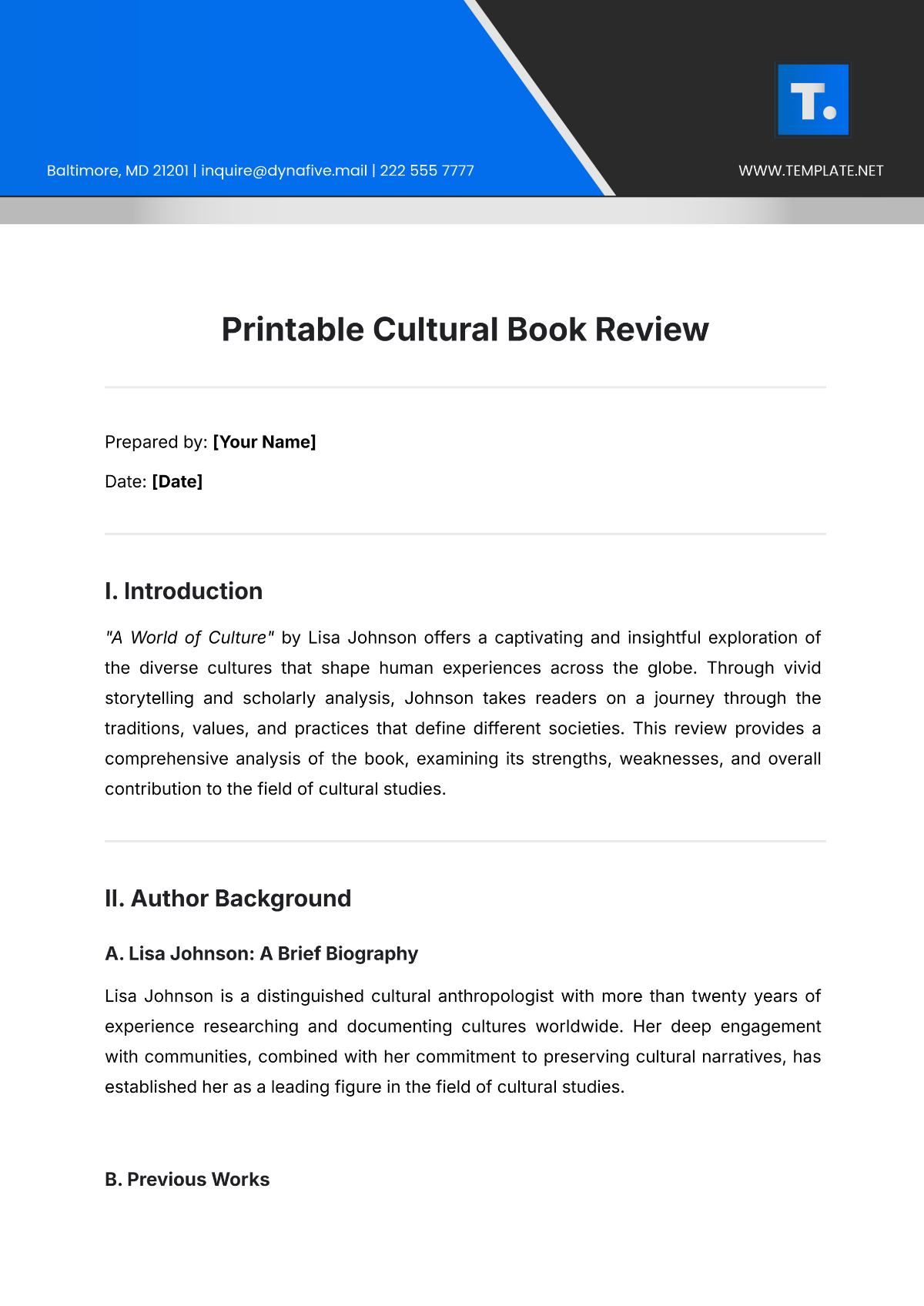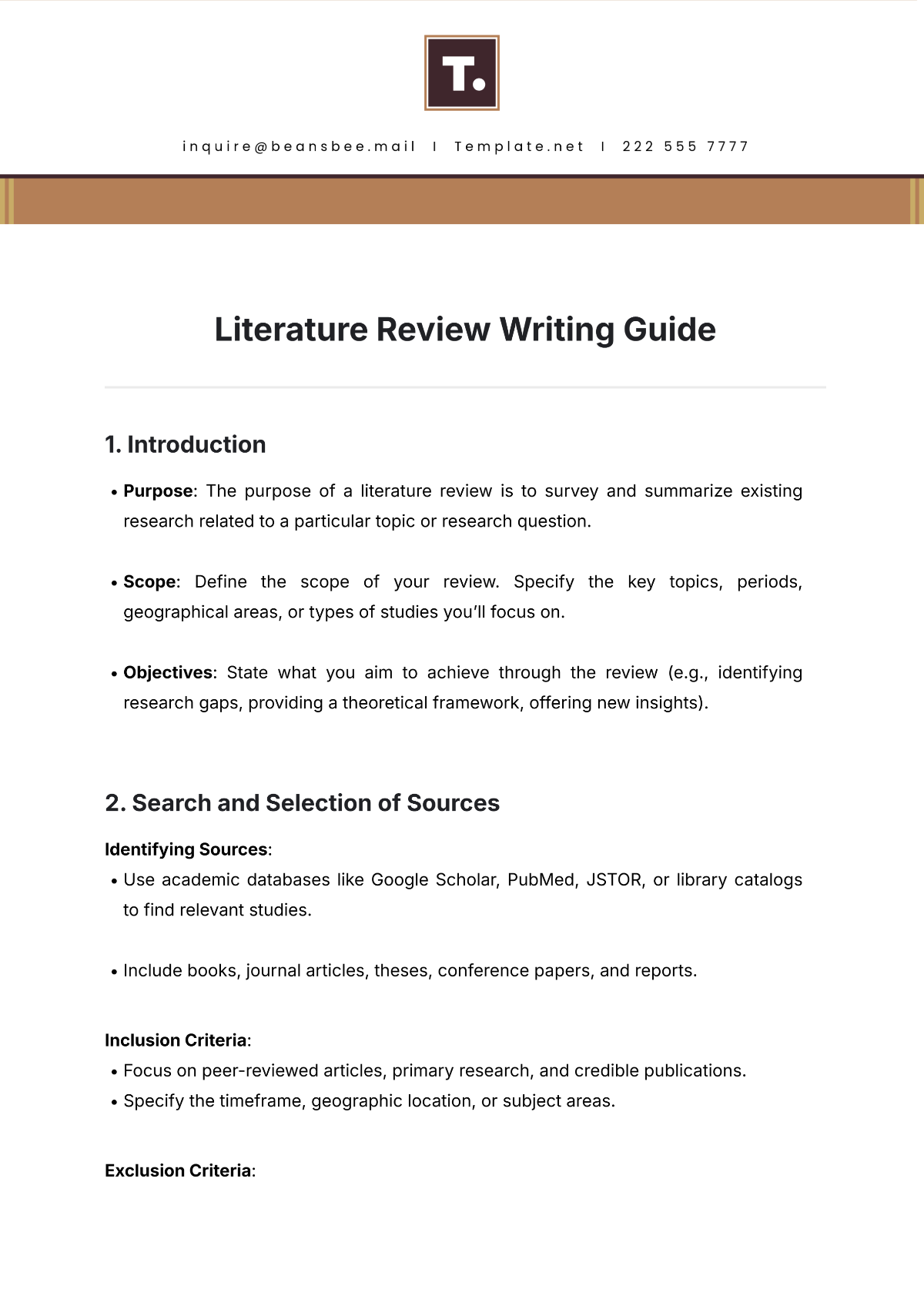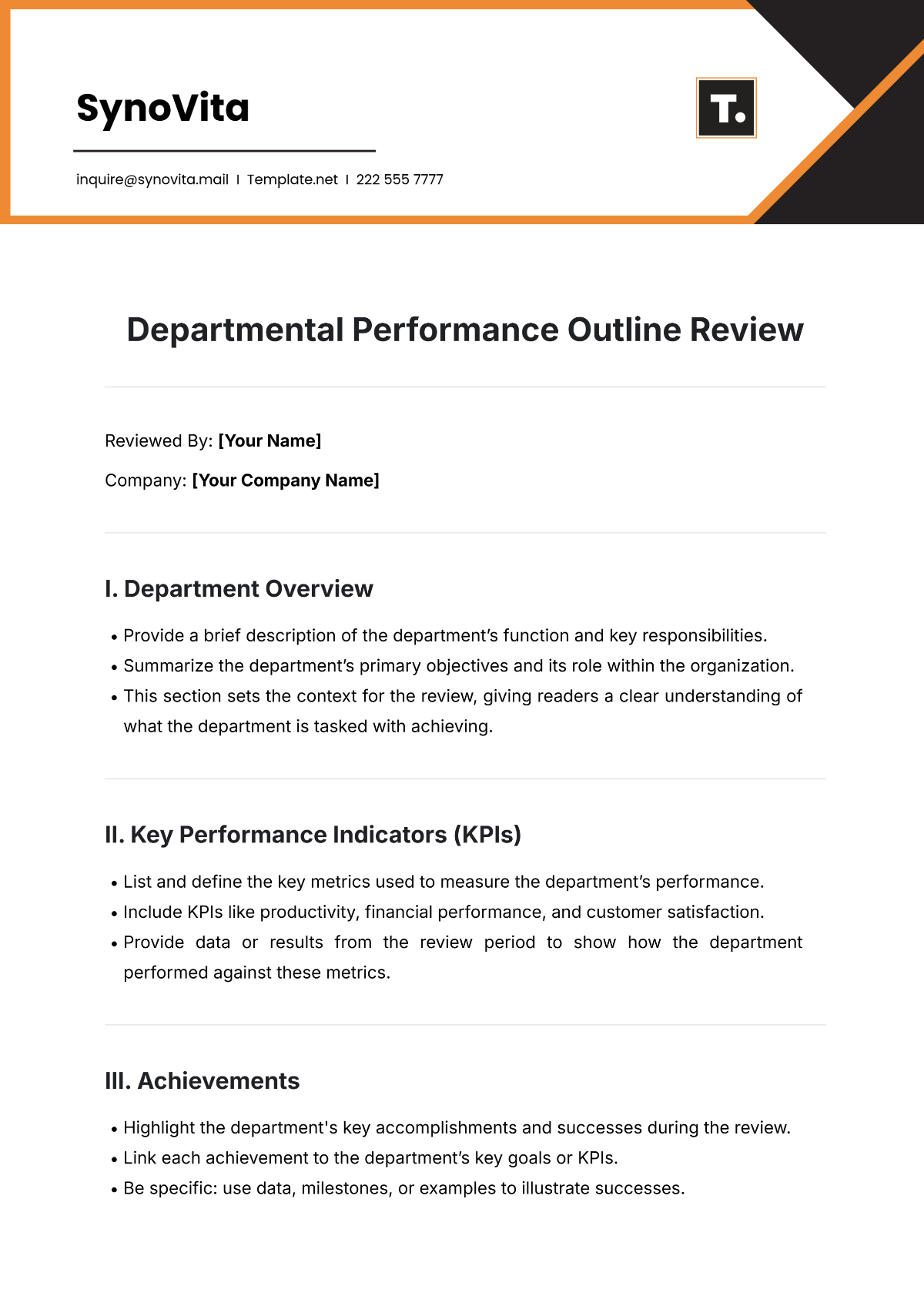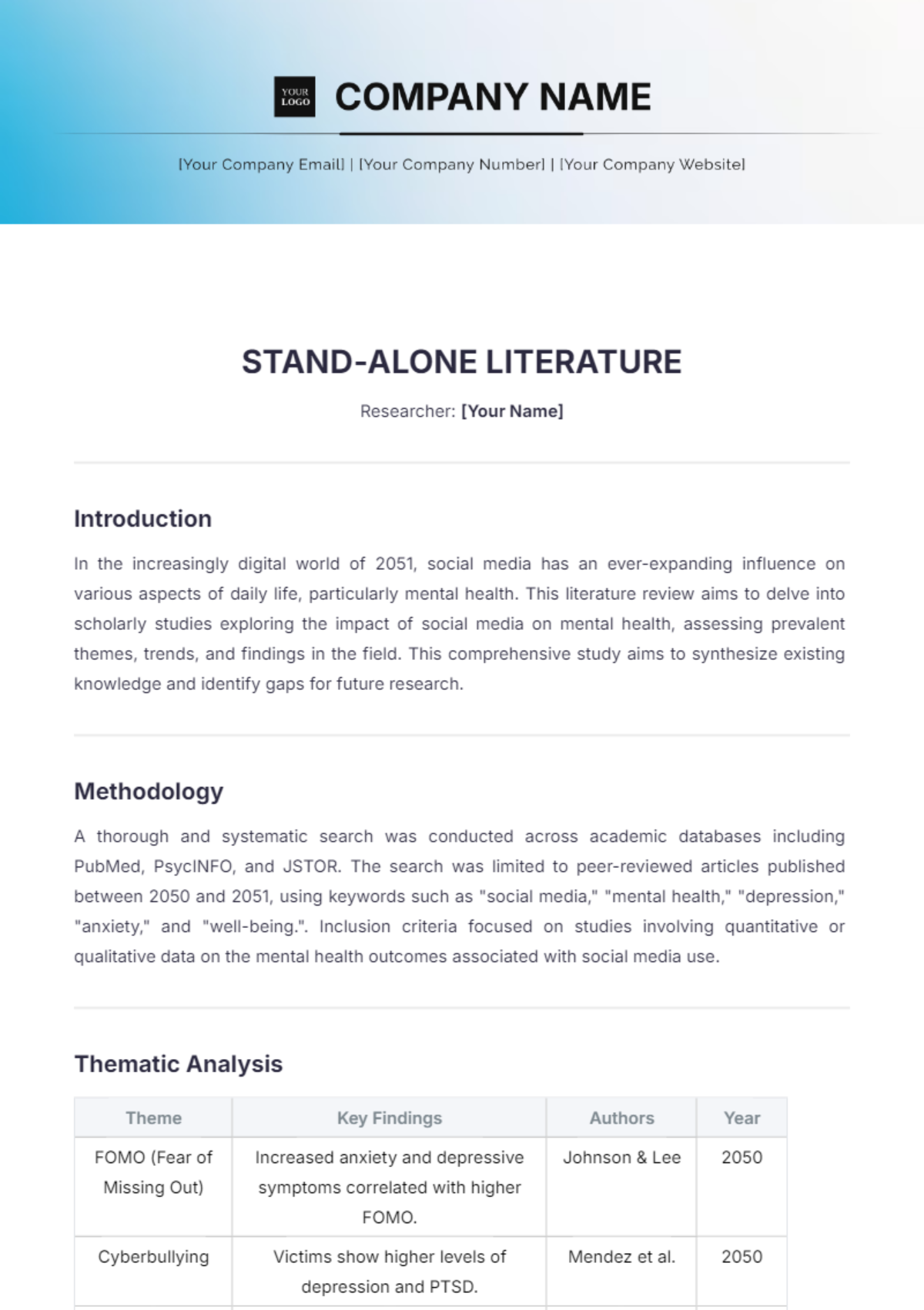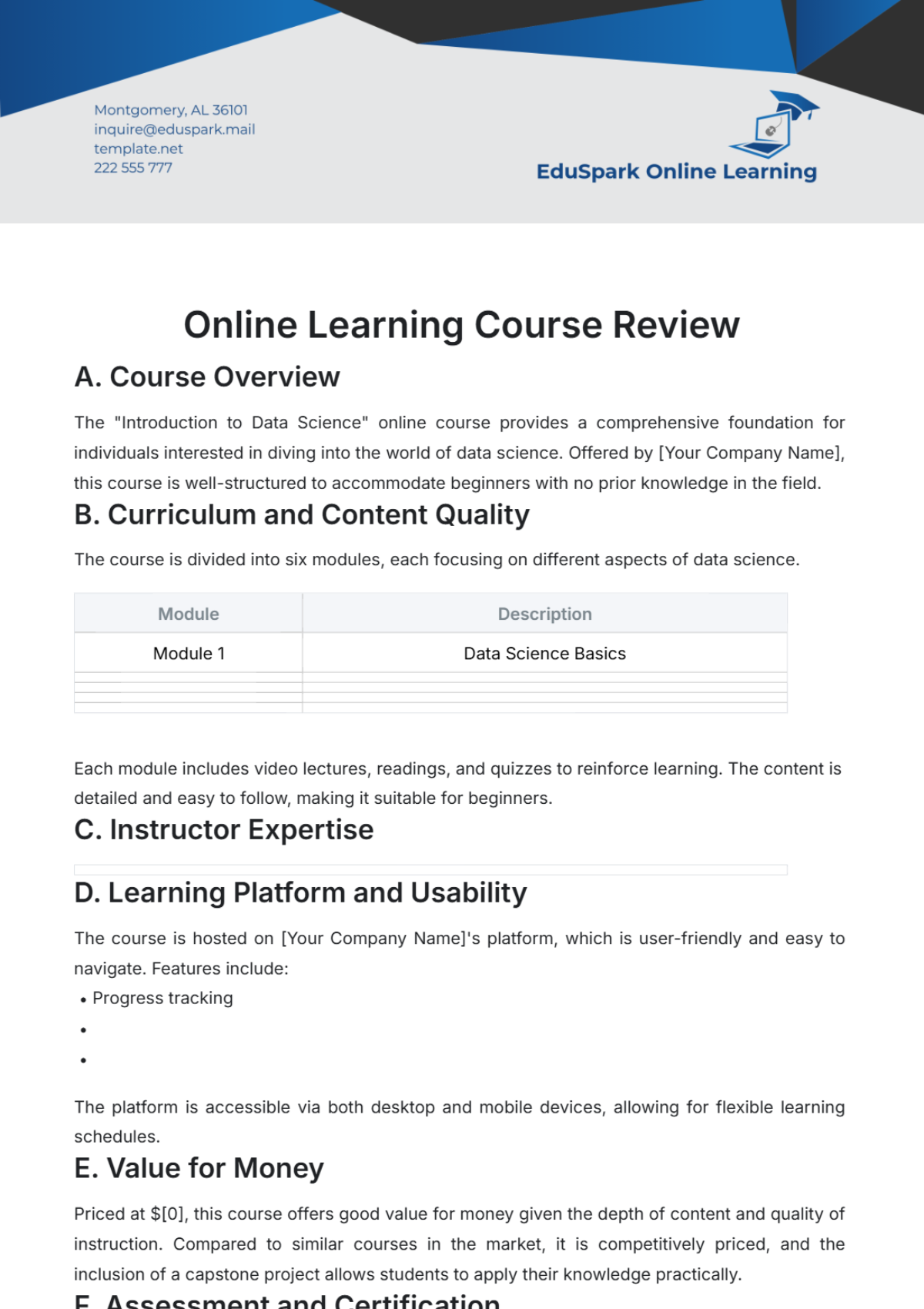Bioethics Systematic Review
Prepared By: [Your Name]
I. Introduction
Bioethics represents a vital and evolving field of study that focuses on the ethical implications of biological and medical procedures, advancements, and technologies. With the rapid progress in fields like genetic engineering, healthcare technology, and clinical research, bioethics plays a crucial role in ensuring that these innovations align with societal values and ethical standards. This systematic review aims to provide a comprehensive analysis of the current state of bioethics, identifying key themes, trends, challenges, and areas for future research. By synthesizing recent literature, this review highlights critical developments and ongoing debates within the field.
II. Methodology
This systematic review employs a structured approach to gather, screen, and analyze data from multiple sources. The methodology used ensures a comprehensive and unbiased assessment of bioethics literature. The following steps were integral to the process:
1. Defining Inclusion and Exclusion Criteria
Studies were selected based on specific criteria, ensuring relevance to bioethics. Inclusion criteria involved studies that focused on ethical issues in biological and medical research, while studies unrelated to ethical considerations or outside the healthcare domain were excluded.
2. Comprehensive Literature Search
A thorough literature search was conducted across multiple databases, including PubMed, JSTOR, and Google Scholar, to ensure a broad representation of bioethical discussions.
3. Screening and Data Extraction Process
All studies were screened for relevance based on title, abstract, and keywords. Data extraction focused on identifying key themes, ethical issues, and proposed frameworks for resolving bioethical dilemmas.
4. Quality Assessment of Included Studies
The quality of the studies was evaluated using standardized criteria, including methodological rigor, clarity of ethical arguments, and relevance to current bioethical challenges.
5. Data Synthesis and Analysis
Data from included studies were synthesized to identify common themes and emerging trends in bioethics. Qualitative and thematic analysis was employed to group related ethical concerns and suggest patterns across different fields.
III. Key Themes in Bioethics
This review identified several recurring themes that dominate bioethical discussions. These themes reflect both longstanding ethical dilemmas and emerging concerns prompted by technological advancements.
1. Ethical Issues in Genetic Engineering
The ethical considerations surrounding genetic modification technologies, such as CRISPR, gene therapy, and cloning, continue to be a major area of focus. Key concerns include the potential long-term effects of genetic alterations, equitable access to these technologies, and the moral status of genetically modified organisms (GMOs). These discussions often balance the potential health benefits of genetic interventions against the risk of unintended consequences and societal inequalities.
2. End-of-Life Decision Making
Ethical issues around end-of-life care, including assisted dying, palliative care, and advance directives, are central to bioethics. Central debates revolve around patient autonomy, quality of life, and the ethical responsibilities of healthcare providers. Questions about who should make life-ending decisions and how such decisions are regulated remain contentious, especially in culturally diverse societies.
3. Privacy and Data Security in Healthcare
With the rise of digital health records and the increasing use of big data in medical research, patient privacy and data security have become pressing ethical issues. Ensuring informed consent, safeguarding personal health data, and managing the balance between public health benefits and individual privacy rights are ongoing challenges for healthcare systems worldwide.
4. Clinical Trials and Research Ethics
Clinical trials raise important ethical questions, particularly regarding the treatment of research subjects. Key considerations include ensuring informed consent, balancing risk and benefit, and protecting vulnerable populations. As clinical research becomes more global, ethical standards must adapt to address varying cultural norms and regulatory environments.
IV. Trends in Bioethics Research
The field of bioethics has evolved significantly over the past few decades, and this review highlights several notable trends in research.
1. Growing Focus on Interdisciplinary Approaches
Bioethics increasingly integrates insights from philosophy, law, medicine, and social sciences, reflecting the complex and multifaceted nature of ethical dilemmas in healthcare.
2. Increased Emphasis on Global Bioethics
As globalization accelerates, there is growing recognition of the need to consider cultural and regional differences in bioethics. Global bioethics seeks to address ethical questions that arise in diverse healthcare settings, ensuring that ethical standards are both culturally sensitive and universally applicable.
3. Advancements in Regulatory and Policy Frameworks
There is a rising emphasis on developing regulatory frameworks and policies to address emerging bioethical challenges. As technologies evolve, there is a pressing need for updated guidelines and international agreements to ensure ethical governance.
V. Challenges and Limitations
Despite its comprehensive scope, this systematic review faced several challenges and limitations:
1. Heterogeneity of Bioethics Literature
The scope and methodology of bioethics literature vary widely, making it difficult to standardize ethical concepts and frameworks across different studies and contexts. This diversity can sometimes hinder comparisons and lead to fragmented conclusions.
2. Difficulties in Standardizing Ethical Concepts
Ethical principles, such as autonomy, beneficence, and justice, may be interpreted differently in various cultural, legal, and medical contexts. This makes it challenging to develop universal bioethical frameworks that are equally applicable in different settings.
3. Potential Biases in Study Selection and Data Interpretation
Despite efforts to ensure objective selection, there may be inherent biases in the inclusion of studies and the interpretation of data. These biases could affect the overall conclusions drawn from the literature.
VI. Future Directions
Based on the findings of this systematic review, several areas for future research have been identified to address emerging bioethical challenges:
1. Exploration of Emerging Technologies and Their Ethical Implications
As new technologies such as artificial intelligence, robotics, and synthetic biology emerge, there is a growing need for bioethical research to explore the ethical implications of their use in medicine and healthcare.
2. Development of Robust Ethical Decision-Making Frameworks
There is a critical need for more comprehensive and flexible frameworks to guide ethical decision-making in healthcare, particularly in response to complex medical and technological challenges.
3. Emphasis on Interdisciplinary and Collaborative Research
Bioethics research should continue to emphasize interdisciplinary approaches, encouraging collaboration between ethicists, scientists, legal experts, and policymakers to address the complexities of modern healthcare.
VII. Conclusion
In conclusion, bioethics remains a dynamic and critical field that addresses the manifold ethical questions arising from advancements in biology and medicine. This systematic review has highlighted key themes such as genetic engineering, end-of-life decision-making, privacy in healthcare, and research ethics. The trends and challenges identified underscore the growing importance of interdisciplinary and global approaches to bioethics. Moving forward, it is essential to continue exploring new technologies and developing ethical frameworks that can keep pace with the rapid changes in healthcare and scientific innovation.




